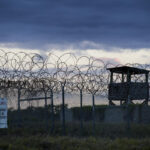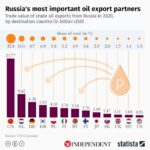
Two broad perspectives have emerged as the civilized world tries to figure out how to respond to the inhumanities perpetrated on Ukraine by the war criminal Vladimir Putin.
One argument counsels restraint and containment in any NATO or other Western action against Putin. Localized aggressors have created bloody massacres before in Yemen, Syria and the Democratic Republic of the Congo (to name but three) this thinking goes. What matters most here is negotiation and containment, especially given the Russian president’s aggressive state and his military’s formidable arsenal of nuclear weapons.
No-fly zones, boots on the ground and other forms of direct military intervention, while tempting in the face of human suffering and pleas for help, risk catastrophic escalation that could destroy much of the planet.
The counterargument often draws on the analogy of the early years of Adolf Hitler, when the world failed to act quickly enough to stop his fascist rout of Europe, thus failing to stop unconscionable subsequent loss of life, including the victims of the Holocaust. If Putin is not stopped in Ukraine, this thinking goes, he likely will be emboldened to encroach on other sovereign nations and, perhaps even worse, other authoritarian regimes, such as China, watching Putin’s success, will be tempted to follow his model in other disputed territorial regions, such as Taiwan.
As British Prime Minister Boris Johnson wrote over the weekend: “Vladimir Putin’s act of aggression must fail and be seen to fail.” Otherwise, consequences will be dire for the whole world.
Most politicians are vacillating between these two points of view. This is unsurprising, since they cannot read the future, and both theories risk consequences that would have been unfathomable just weeks ago.
Most Americans are doing the same as they talk around the dinner table. This is agonizing dilemma for decent people, as it is for editorial boards. It is easier to grab an oligarch’s yacht, source your vodka from Finland or fire the Putin-sympathizing diva from the Metropolitan Opera.
Sanctions on an epic level are tricky, complicated and can cause collateral damage. But in the face of what is going on in Ukraine, they are the world’s best option.
The danger, of course, is that the canceling of Premier League soccer, the closing of designer stores and the general, sudden de-Westernization of Russia and its people sends that country into the hands of China, which has not joined with the West in objecting to the “special military operation in,” aka the invasion of, Ukraine.
That’s already happening with credit-card processing. After Visa and Mastercard announced they would no longer guarantee Russian cards working abroad, many of the affected rushed to replace the contents of their wallet with a Chinese card.
Then there is the unpleasant spectacle of trying to discern which Russian individuals deserve to be personally punished because of their views. The opera world currently is consumed with this thorny debate, arguing over the morality of becoming the thought police in determining who is or is not a Putin sympathizer and, yet worse, insisting on Orwellian statements of repudiation before the first aria is sung. Not an attractive job for the general director of an opera company, and no fun for those in the crosshairs.
Better though, let’s remember, than being holed up in a bunker in Ukraine with your kids. Or lying dead on the ground while attempting to evacuate.
Still, while the broad insistence in London that the Russian billionaire Roman Abramovich divest himself from owning the soccer powerhouse Chelsea has received little opposition, it’s important to remember that he didn’t work alone. Oligarchs have employees, their yachts have non-Russian crews, their Manhattan realtors have bills to pay and myriad other innocents suffer.
This situation is the sole responsibility of Putin, not the West. Period.
Sanctions cannot be cancellations. The sanctions must not be viewed through the same lens as the performative congressional “freedom fries” debacle in 2003 after France opposed the U.S. invasion of Iraq. That was mere posturing. And there is no logic to covering up the abstract work of Wassily Kandinsky, refusing to listen to the symphonies of Pyotr Ilyich Tchaikovsky, throwing Anton Chekhov plays out of the theater, or demanding of ordinary Russians, living under an authoritarian regime with long tentacles, that they publicly state their politics on pain of personal ruin.
But, no, cruise ships should not now be calling in St. Petersburg. Washington should move ahead with banning Russian oil from coming into America. Netflix should not be filming comedies in Russia. Aeroflot should not be allowed to land at O’Hare International Airport, nor should any of the big international consulting firms be working for Putin or his pals. And who can drink Russian vodka in good conscience right now when other options are available that taste much the same?
Sanctions are imperfect and imperfectly targeted. If and when Putin is gone, they should be removed. The post-invasion economic recovery of a Russia without Putin will be in everyone’s interest.
But that is not the situation now. This is not an ordinary military incursion or territorial dispute: Putin is targeting civilians and killing children in Ukraine. Strategy is important but so is our basic morality as human beings. We cannot merely stand by as the people of Ukraine suffer.
Sanctions are the very least we can do to help end this brutal period of global history. Russians must understand we mean them no harm and that we are always at the negotiating table alongside the brave people of Ukraine.
But end it, we must. Together.
Join the discussion on Twitter @chitribopinions and on Facebook.
Submit a letter, of no more than 400 words, to the editor here or email letters@chicagotribune.com.




